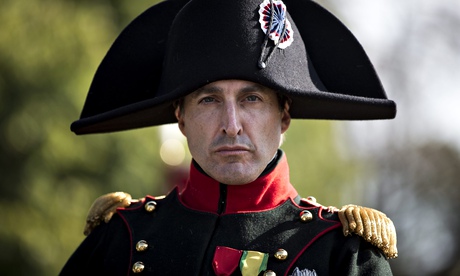
When an officer at the battle of Waterloo told the Duke of Wellington that Napoleon was in their gun sights, the field marshal replied that it was "not the business of commanders to be firing upon one another".
What seemed dishonourable for a battlefield soldier was not for politicians, for it seems that the British government was behind an assassination attempt on Napoleon in 1804, according to historian Andrew Roberts. He has unearthed archival material that he believes directly implicates cabinet minister Lord Castlereagh in the unsuccessful 1804 Cadoudal French royalist plot to assassinate Napoleon.
Roberts said: "Although historians have wondered whether or not the British were behind it, at the time the British government denied any connection and has done ever since. I have discovered the smoking-gun connection."
He said he had found evidence of direct British government involvement in correspondence which had been overlooked until now in a US archive. The first letter, written in 1803, includes a demand for a vast sum of money "relative to a political intrigue planned by Lord Castlereagh to abduct Bonaparte".
"Abduction" was code for assassination, Roberts said. "There was no way they were going to abduct him by throwing a bomb in his coach. It was very much an attempt to kill him."
The letter to Castlereagh came from a "Mr Walter Spencer", who sought the repayment of £150 for himself and £1,000 for Michelle de Bonneuil, a royalist agent with connections to the Comte d'Artois, France's future King Charles X.
It has survived alongside a response from George Holford, a member of parliament and Castlereagh's closest political friend, who informed Spencer that if he would "take the trouble of calling in Downing Street his lordship will see him upon it".
Roberts said: "If [Spencer] was bogus, a fraud or a conman, he would [never] have been invited to Downing Street to meet Lord Castlereagh."
The plot was foiled by Napoleon's police minister, Joseph Fouché, who warned him that "the air is full of daggers" and, in one official report, listed 10 different conspiracies against his life.
Roberts includes his research in Napoleon the Great, published on 2 October. A three-part BBC2 TV series by Roberts will be shown next year.
It has always been assumed that the Royal Navy, known to have been involved in the plot, must have acted with the knowledge of the government, but Roberts said: "This is new. Nobody's been able to connect the British government with the assassins until now, even though the navy took the assassins from Dover to a beach off Dieppe."

